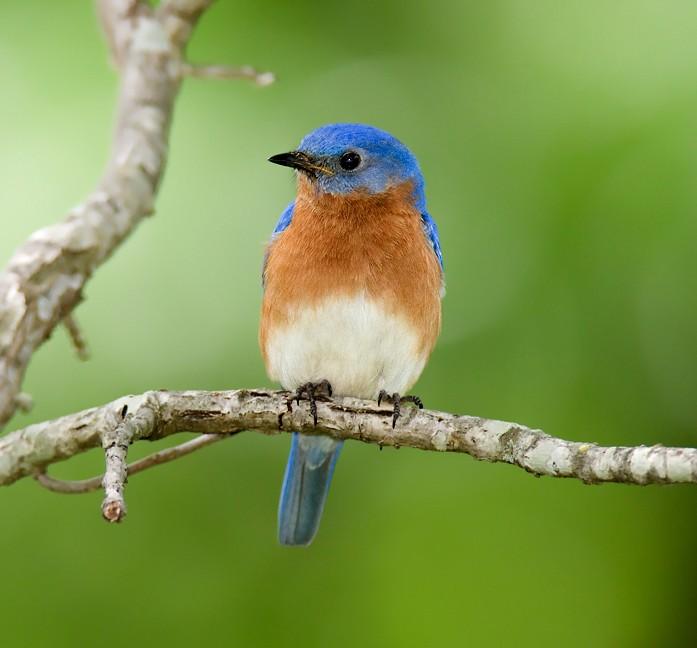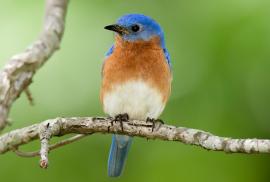Guide to Boreal Birds
Overview
This beautiful bird is a favorite of many people and is eagerly awaited in the spring after a long winter. In places where bluebird nest boxes are erected and European Starlings and House Sparrows are controlled, up to six pairs of bluebirds will nest on as many acres. In the past 25 years bluebirds have become uncommon in the East for reasons not altogether clear. Competition for nest sites with European Starlings and House Sparrows is likely a critical factor. The erection of many artificial nest boxes in recent years seems to be helping to increase the population. The Eastern Bluebird is also the state bird of Missouri and New York.
Description
7" (17 cm). Bright blue above and on wings and tail; rusty throat and breast; white belly and undertail coverts. Female similar, but duller.
Voice
Call a liquid and musical turee or queedle. Song a soft melodious warble.
Nesting
4-6 pale blue eggs in a loose cup of grasses and plant stems in natural tree cavities, old woodpecker holes, fence posts, and bird boxes.
Habitat
Open woodlands and farmlands with scattered trees.
Range/Migration
Breeds east of Rockies from southeastern Canada to Gulf of Mexico; also in mountains of southeastern Arizona and southwestern New Mexico. Winters in southern part of breeding range. Also in Mexico.



